Cleaning Insights from the ACG Works Blog
Explore practical cleaning insights, hygiene tips, industry updates and expert advice from the ACG Works team, helping businesses maintain safer, cleaner and more efficient workplaces.
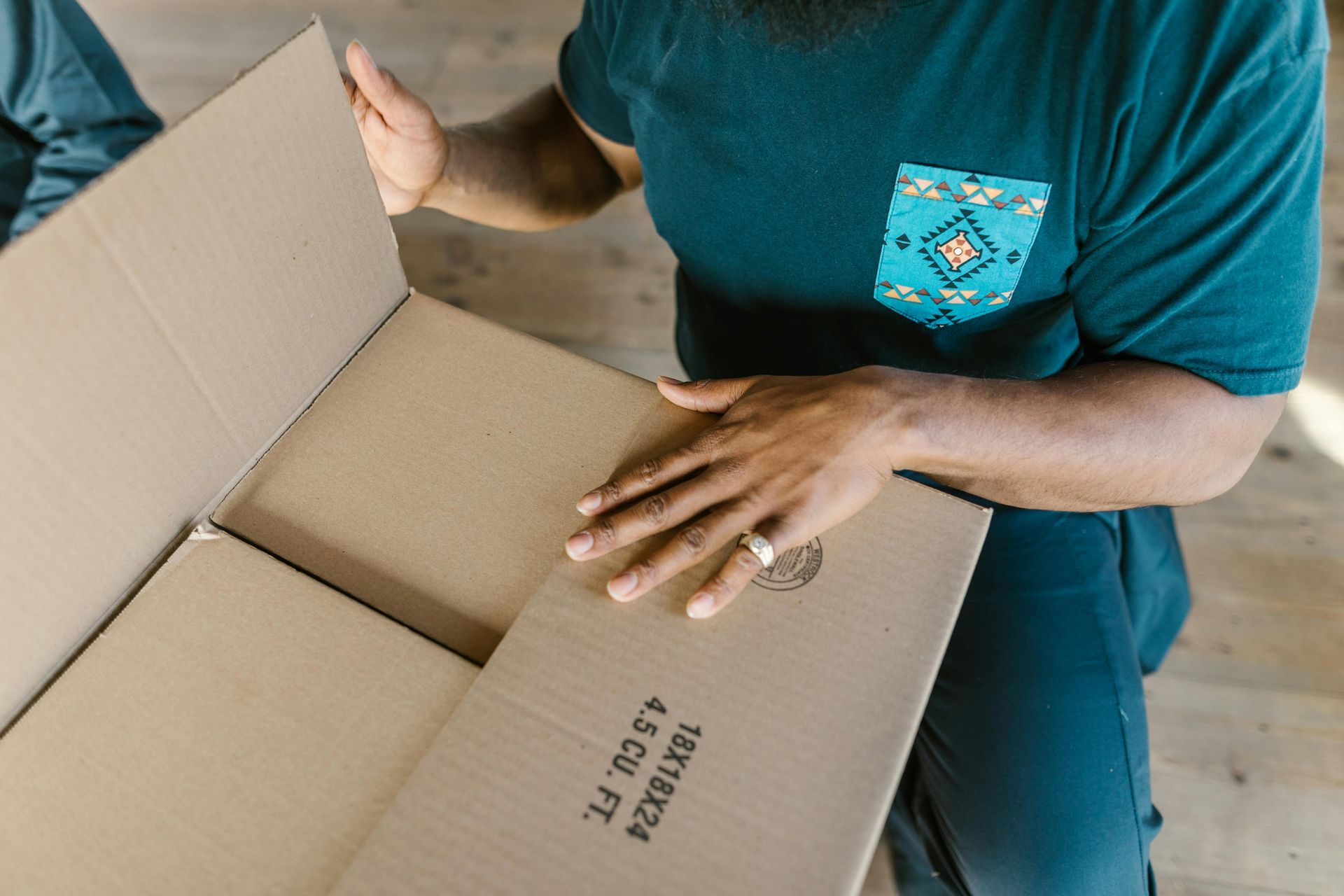
July 15, 2025
Moving from big to smaller offices, or vice versa, requires careful planning to optimise the available space; but it also requires professional cleaning and sanitisation to ensure that staff and visitors are kept safe from harmful pathogens, dust and pests. Professional cleaning services add value to new office buildings Buildings are nesting places for pests, bacteria, and other germs. While most people think their workplace has been thoroughly cleaned before moving in, it is sensible to verify that the building meets high quality cleaning standards throughout. A clean workplace is essential for the health of all people working at or visiting the premises, and it reduces the risk of allergies and disease. Productivity levels can be optimised if staff are healthy and more relaxed knowing that their environment is safe. Performing in-house office cleaning may take more effort, time and skill than expected. If, like most moves, you’re working on a tight schedule, cleaning the workplace on your own could spell disaster. As an alternative, a professional cleaning company will clean and sanitize all areas effectively, using proven products and cleaning techniques, prior to the move. There are many advantages of investing in professional cleaning services before moving into new premises. Here are five: 1. Establish a sensible cleaning schedule Giving a professional cleaning company access to the new office space prior to taking occupancy, provides the cleaning team an opportunity to inspect the space in totality and to compile an applicable and holistic cleaning schedule that will not only support your cleaning objectives, but will identify any potential issues or risks, and will help you to uphold your company’s reputation. Contracting professional cleaning services permanently will ensure that your people operate in a safe workplace, and that a high standard of hygiene is maintained continuously into the future. 2. Minimise allergies Allergens are a prominent issue in the workplace. Itchy eyes, sore throats, and sneezing are the last things your staff want to deal with as they adjust to the new office. Professional cleaning services help to ensure that grime build up, dust and other air pollutants are eliminated before your teams start working, whether the office space is newly built, renovated or previously occupied. Moving into a new environment is easier knowing it is clean and free of allergy triggers. It helps to ensure that your people stay well and prevents workers from calling in sick due to a runny nose, headache or sore throat during the transition. 3. Best cleaning practices for best outcomes The correct cleaning materials, tools and techniques need to be used to ensure the right outcome – a safe, clean environment. Professional cleaning companies have access to product ranges that are suitable for diverse applications and operating environments. Green products, for example, are used to support a company’s environmental practices, while certified food safe products are used to adhere to stipulated health and safety standards. Cleaning products need to be diluted correctly and applied appropriately using the right contact times according to the manufacturer’s guidelines to be effective. Having an expert team to assist in selecting the right products, tools and cleaning techniques helps secure cleaning success. 4. Broad cleaning services and consumables management Professional cleaning services companies specialise in diverse environments and solving cleaning challenges such as deep stains, damp, mold, mildew and pests for example. Investing in professional cleaning services enhances the quality of the facilities, restricts future damage and manages risks more effectively, delivering a safer, better experience for staff and visitors. Expert cleaning teams are also trained specifically to address these issues and are managed proactively to ensure that quality cleaning services are delivered at predetermined intervals, as agreed to with the client, consistently. 5. Access to cleaning consumables and products Professional cleaning companies replenish cleaning and hygiene consumables at the right intervals, ensuring users of your facilities enjoy their experience. This eliminates needing to run out at the last minute to purchase cleaning materials, bathroom consumables or specialised chemicals. These are all readily available if you partner with a professional cleaning company. Take action Add significant value to your move by obtaining an obligation free quote from a professional cleaning services company. Make an appointment before your move to ensure the best outcome for your people and visitors. Choose a reputable cleaning company that will prioritise the health and safety of your people, will add value to your relocation and, importantly, will deliver peace. Bonus tip If you are looking for professional moving services to assist you in your move, visit Wise Move where you'll find professional, reputable services from hundreds of movers who are committed to providing the highest level of professional moving services for your logistical needs. Performance guarantee – no contract required At African Corporate Cleaning, we are so confident about solving all your needs that we will do so without any long-term contract in place. If we let you down, you just let us go. This ensures that we will always work hard at keeping you happy.
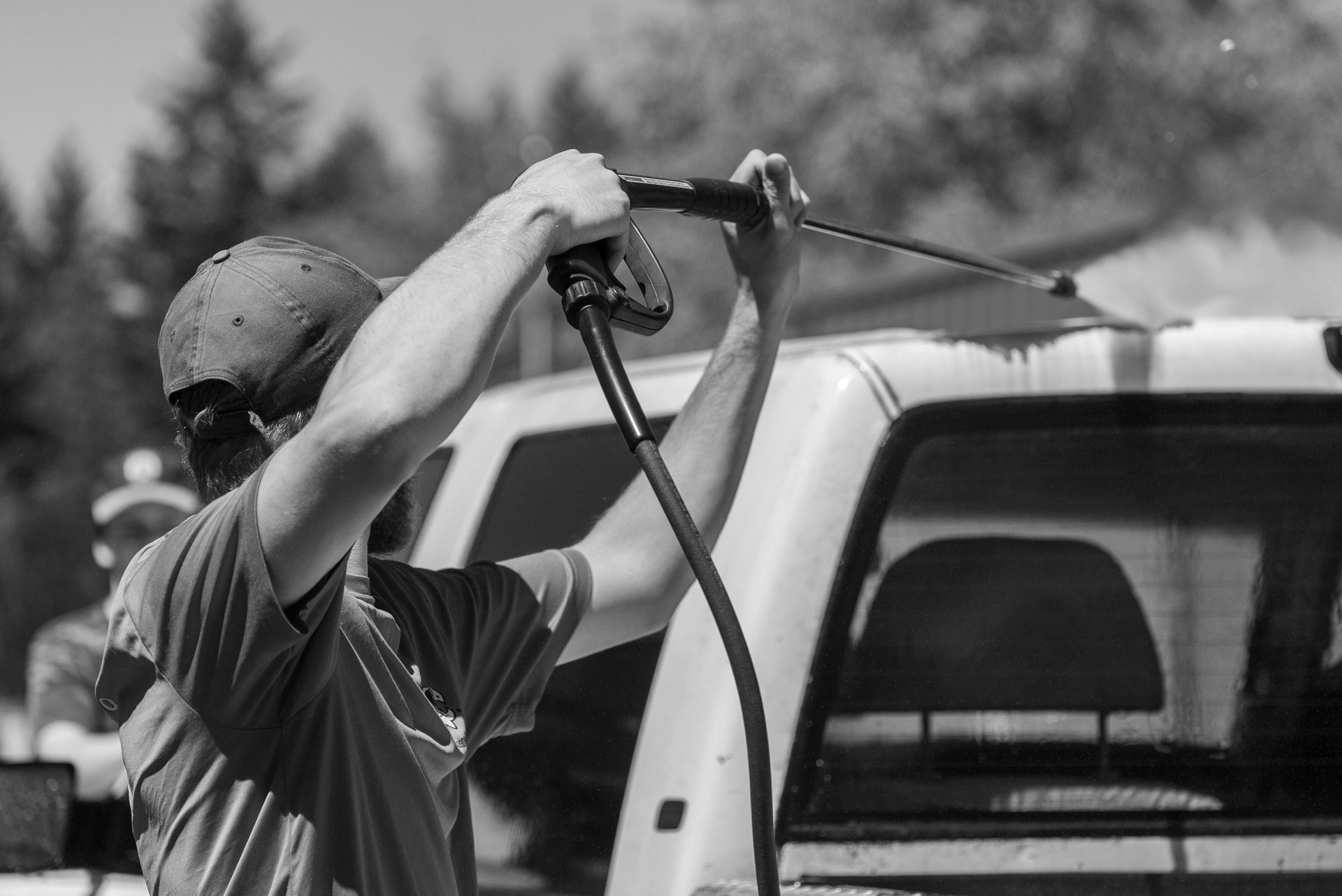
June 12, 2025
Outsourcing the cleaning of delivery vehicles adds business value to companies where logistics is fundamental to their operations. Cutting edge cleaning technologies, quality products, proven cleaning methodologies and processes, and customisable service agreements are just some of the benefits that a professional cleaning services company delivers. With quality, well-trained and well-managed cleaning staff, the outsourcing of delivery vehicles cleaning to a professional services provider enables a company to rather focus on their core business. Management processes, cleaning schedules, operating procedures and tracking systems form part of how the cleaning team seamlessly becomes an extension of the business. The following infographic provides more information.
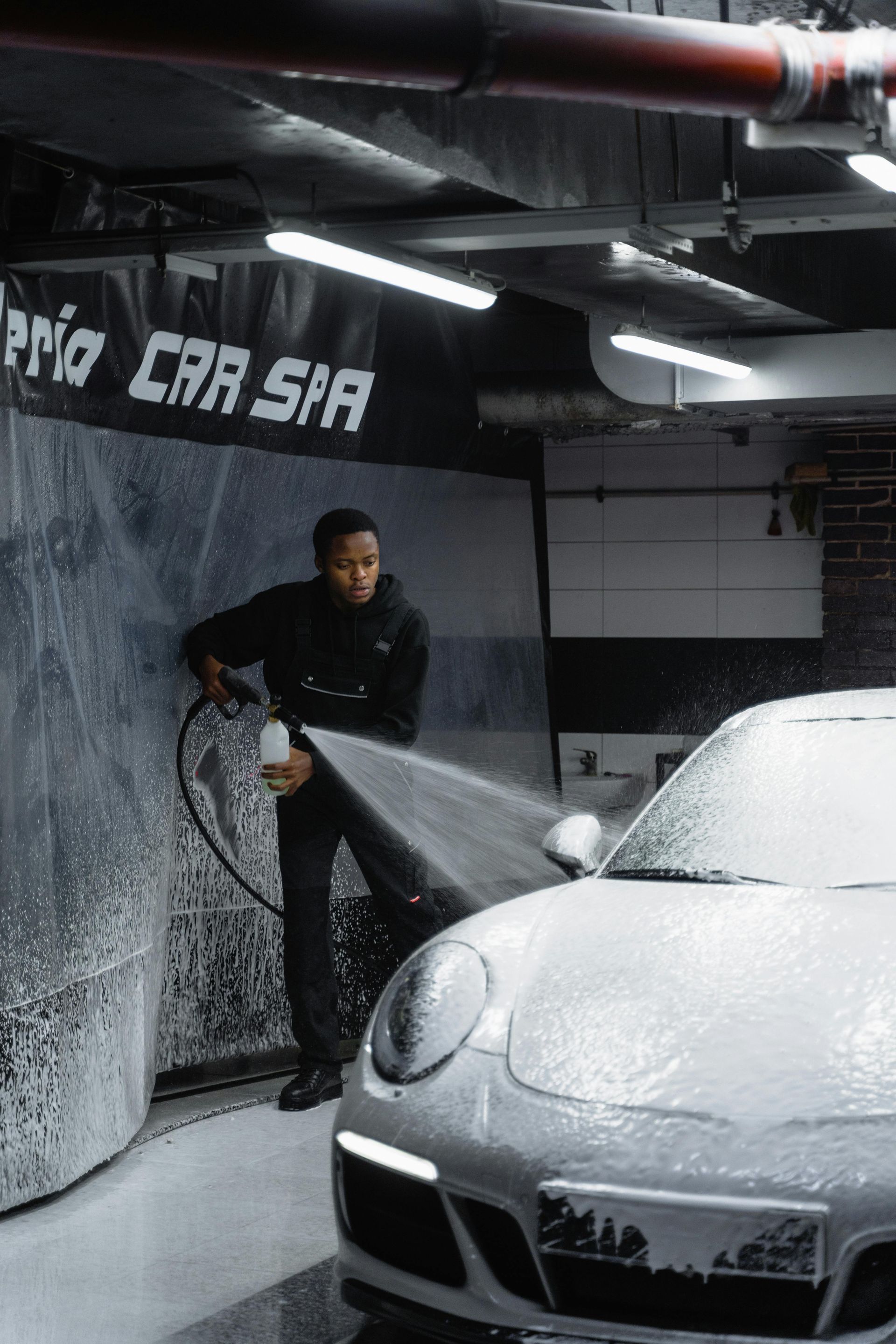
June 12, 2025
It is a great feeling to step into a fresh smelling, sparkling clean vehicle after a car service. The wheels are polished, the dashboard shines and there is no dust or dirt anywhere to be seen. Strictly speaking, the real value lies under the bonnet where the mechanical services were rendered, but we all agree that the experience of servicing, or even buying a vehicle is dramatically improved because of the valet service that it received. Carwash facilities that offer full vehicle valet services operate at most vehicle service centres and are typically operated by a contracted cleaning company. These facilities are rigged to clean new and used cars, commercial vehicles, buses and trucks. 1. Humble wash bay services in perspective No one walks around a car showroom noticing how clean the cars or the facilities are. It goes without saying that if companies want your business and if they want to sell cars, then the cars and the facilities need to be kept spotless. Few companies tackle this repetitive job in-house and opt for an outsourced cleaning model. The automotive services that professional cleaning companies deliver ensure an excellent customer experience, whether buying a new car, or servicing an existing one. Three-in-one paint protection : This value-added service falls under valet services and provides extra paint protection for up to a year. Polish is machine-applied, resulting in a lustrous finish that feels like a new paint job. Fabric guard: Car interiors are subject to stains and spills. A fabric guard that is applied after steam cleaning helps to make cloth upholstery more resistant to dirt. Scotch Guard is the most recognised fabric guard in the industry. Leather interior care: Leather interiors need regular care to ensure that the leather stays clean and supple. A two-part cleaning process involves vacuuming and cleaning the chairs of visible dirt, and applying a cream-based leather treatment to condition the leather. Facility cleaning: Automotive retail facilities include the offices, showroom, bathrooms, passages, walkways, reception area, new and used car sides, as well as the workshop and wash bay. The general cleaning services are often combined with specialist wash bay services and outsourced to a professional cleaning company. 2. Ensuring the right equipment and chemicals for the job As with most manual labour, using the right equipment and materials is critical to a successful outcome. Professional cleaning companies ensure that they use the best quality materials and that their equipment is used for the intended purpose and well maintained to ensure the highest levels of satisfaction. High pressure washers: High pressure cleaners with hot and cold water options are used in passenger and commercial vehicle cleaning. However, hot water units are predominantly used for industrial applications where trucks operate in dirty areas such as mines where dust and residue stick to oil and grease spills on the vehicle. Industrial vacuum cleaners: Forget about your domestic vacuum cleaner, professional cleaning companies use industrial dedusting cleaners that offer superb cleaning performance with various applications to maximise reach and effectiveness, save time and resources, and are convenient to operate. Polish equipment: The right polisher with buffing and polishing pads ensures a smooth finish in the shortest time. This is essential to ensure that vehicles are moved through the bay quickly and efficiently. Valet tools: All wash bays have the right quantity of standard buckets, nozzles and vacuum extension cords to ensure seamless teamwork and productivity in the bay. This includes microfibre cloths, which deliver the best cleaning finish. Specialised cleaning products and processes: Cleaning companies use detergents and chemicals that are designed for use in the industry and are intended for vehicle interiors and exteriors. They are biodegradable and environmentally friendly, except for the tyre shine, which has a silicone base. Clients can choose a more environmentally friendly, water-based option, but it delivers a lower shine value. Grease trap filtration: All wash bays are required to have a grease trap filtration process that forms part of the waste-water management programme, ensuring that no unwanted chemicals enter the drainage system. 3. Keeping a tight handle on water consumption Living in Africa necessitates prudent water management to ensure the sustainability of this precious resource for future generations. Wash bay service providers have a corporate responsibility to curb water usage, without influencing the quality of their services. Waterless cleaning not only means cost saving; it also means that there is no longer a need for high pressure equipment. Cleaning staff can also clean the vehicle on a showroom floor, or wherever it stands, eliminating the need to move the vehicle to the wash bay area. This not only saves time, but it eliminates the risks involved in moving vehicles around tight showroom floors for instance. Water recycling systems: Depending on the water recycling system used, wash bay services can reduce their water consumption by 80%. (This figure can go up to as much as 90-95% depending on the system installed.) Some systems only filter out the solids and grit in the water, but do not filter the detergents, which results in the water eventually going bad. While other systems use a natural biological process that is 100% chemical free. These biofiltration systems do not require chlorine or other chemicals to be added to the water, instead, they use naturally occurring, bio filters that take care of the solids, the detergents and the grease in the water, so there is no need to treat the water with chemicals. Product selection: Where palm wax is used as a waterless car cleaning chemical, for instance, less than a litre of water can be used to wash an entire car. The product lifts and removes dirt without scratching the surface and can save up to 130-200 litres of water per wash, while giving a high shine finish. 4. Managing human resources – the make-or-break factor in cleaning Cutting edge cleaning technologies, proven cleaning methodologies and processes, and customisable service agreements are some key aspects of professional cleaning services. But quality, well-trained and well-managed cleaning staff is what differentiates one service provider from the next. Management processes, cleaning schedules, operating procedures and tracking systems are vital to quality service delivery and to manage client satisfaction. Customer complaints management system : A formal complaints system needs to be in place to solve and escalate any issues that may have been experienced on site. Customer service index rating : Most vehicle service centres utilise a post-service customer survey to rate the client’s experience. This rating is driven by head office and affects the evaluation of the dealership and is used as a factor in the rewards and incentive programme. Vehicle cleanliness forms part of the survey and influences the care dealership’s overall rating. Internal audits: Inspection software is used to conduct internal and to verify the quality of work on a weekly basis. Full-time supervisors : The operations at wash bay sites require fulltime supervision. Supervisors should be equipped with company cell phones to contact head office to address any problems quickly. Insurance : Working with expensive vehicles carries the risk of damages. Scratches and collisions in the wash bay are prevented using strict operating procedures, but accidents can happen. Cleaning companies need good insurance to cover any repairs that may be needed to ensure the dealership maintains the trust and loyalty of their clients. This includes covering vehicle theft and issuing a courtesy car during the time that the vehicle undergoes repair. Courtesy vehicle collections and returns add to the quality of the problem management and is something that only distinct cleaning company perform. 5. Optimising the benefits of outsourced wash bay services Businesses that focus on their core operations are more likely to grow their strategic offering. This business model necessitates the outsourcing of non-essential services such as the wash bay, which offers several business advantages: Flexibility : Outsourcing gives businesses the flexibility to employ more hands during busy periods and fewer resources during quieter times. The monthly service contract is simply adjusted on demand. Convenience: Contracts can be formulated on a month-to-month basis with no long-term agreement, allowing for easy exit if required. End user satisfaction: Cleaning companies use experienced teams to deliver quality cleaning services with close attention to detail. Peace of mind: Outsource arrangements ensures that the hands-on management of the wash bay is taken care of and that when necessary, problems are addresses and solved. Enhanced capacity: An outsource arrangement gives business access to many trained resources at any given time. Empowerment: Conducting business with a level 2 broad-based black economic empowerment rated company provides 125% procurement recognition for the clients. 6. Helping to secure return clients, again and again After making a sale, automotive dealerships potentially secure a workshop client and retainer income for the entire lifetime of the vehicle. The longevity of that relationship is enhanced by the overall workshop service experience as well as the after-service experience that the client enjoys, including climbing into a clean, fresh car once the car service is complete. Where clients are satisfied, they will keep coming back for more, knowing their money was spent wisely. Performance guarantee – zero contract At African Corporate Cleaning, we always put our clients first and we are confident that we will deliver and maintain the highest levels of satisfaction. If somehow we disappoint you and we are not able to regain your trust, then we will remove ourselves from your facility to save you any further inconvenience. See how quickly we can help you We have the right teams that ensure the highest standard of cleaning activities, approved cleaning methodologies and practices, and a management team with extensive experience in monitoring performance and conducting successful audit responses to ensure food safety and sustainable business in the food supply industry. Contact us for fast assistance ACC Works helps automotive businesses build client loyalty by supporting the vehicle buying and servicing experience, ensuring a polished vehicle inside and out every time. Other services you may want more information on: Washroom hygiene services Pest control Corporate cleaning services and deep cleans
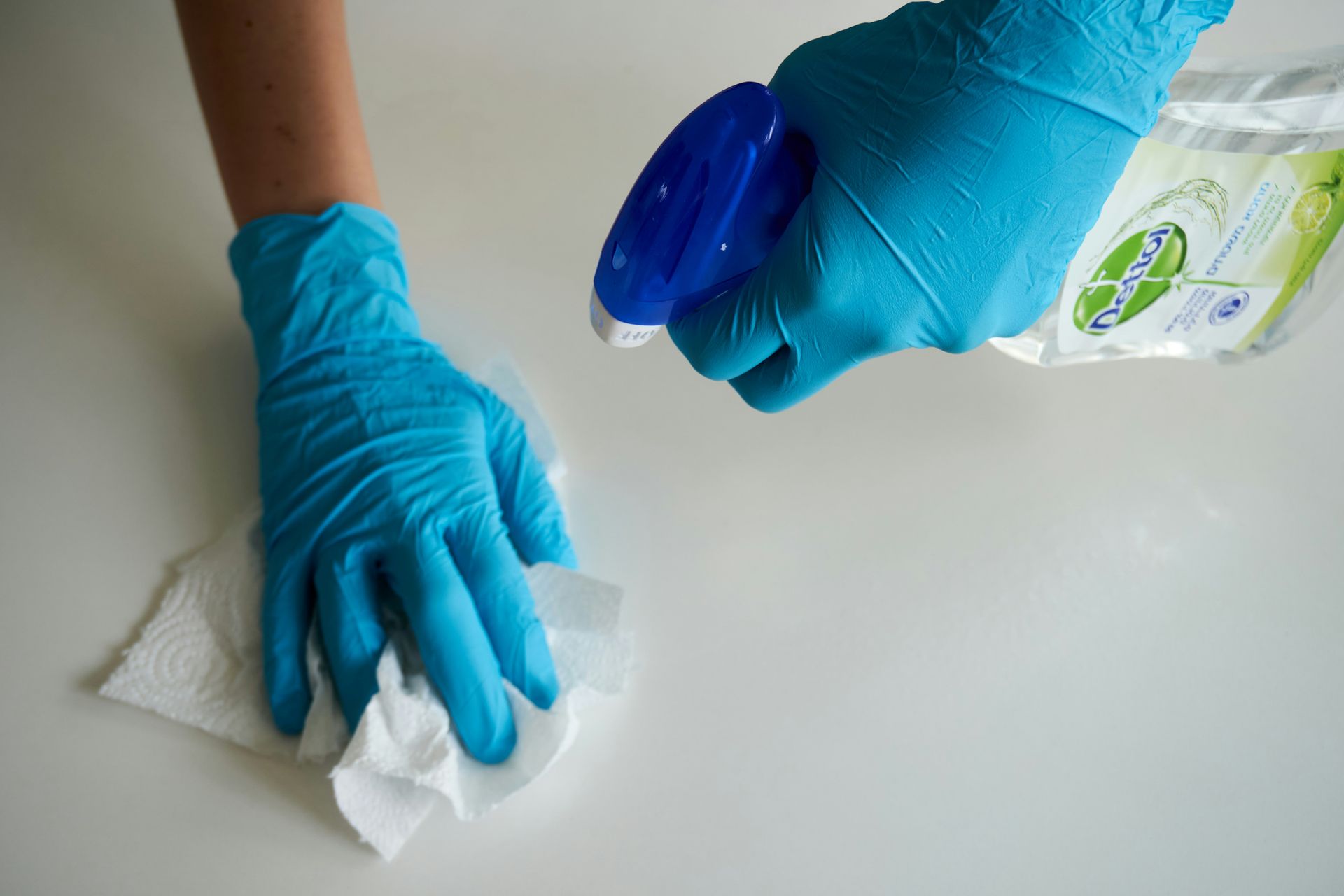
June 12, 2025
With so many professional cleaning companies in the industry, the only way to make it is by being the best at what you do. Having a unique advantage by providing a quality service is what makes A CG Works the leaders in professional office cleaning; amongst other cleaning solutions. As a professional cleaning company specialising in everything from eco-friendly vehicle cleaning to much-needed hygiene services, we understand the importance of providing ongoing quality work to new and existing clientele. Here’s why we’re the leaders in professional office cleaning: We provide customised cleaning solutions to fit your budget There’s no ‘one size fits all’ solution with us. We understand that each industry has its own needs and certain clients may need a little bit more TLC than others. We also understand that some clients have smaller budgets than others, which is why we believe in providing what you need without adding any extras in order to make money. We care about the well-being of our clients. Our experience range across multiple industries Since we service such various industries and offer specialised cleaning solutions to over 50 and counting clients, our experience within the industry is quite extensive. Thus, you never have to worry about us not knowing how to do our job or having clients check up on our services rendered. We only employee professional staff and reliable supervisors. We have a large team of professional cleaners on hand Since we have a large client base, we need to ensure that we have enough staff members to provide quality services to all. We also need to make provision for new clientele, which means we employee over 500 professional cleaners to ensure we’re always ready when you need us most. We invest in regular product and cleaning technique training At ACG Works, we understand that a team is only as strong as its weakest link, in which case we offer continuous product and cleaning technique training sessions to ensure our staff members are fully equipped to handle any job regardless of the size. We implement leading processes, technologies, and cleaning techniques on a daily basis. Operating under the endorsement of the National Contract Cleaners Association and offering contract and project-base services to clients, we’re proud to work with a wide range of clients within multiple industries; providing us with experience that money simply can’t buy. Need a quote?
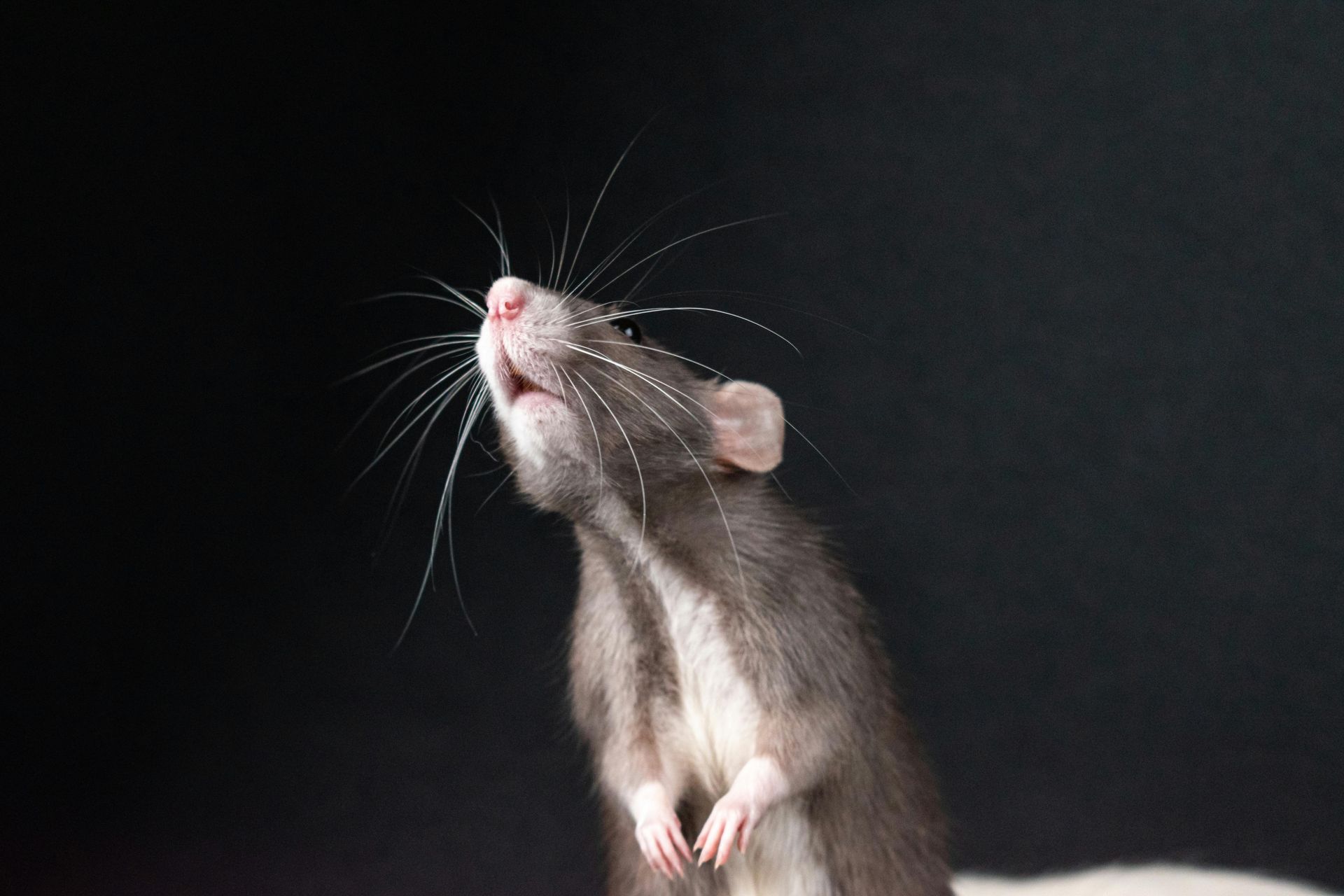
June 12, 2025
As a business owner, there are certain important maintenance aspects to keep in mind to ensure a clean environment. It may not be something you’d necessarily think of on a regular basis, but an unsightly pest control epidemic can happen relatively overnight; which is not only bad for business, but can’t potentially harm the employees running your company. Don’t get caught off guard. Remember, prevention is always better than trying to find a quick cure; especially when it comes to a professional setting. Here’s why your business absolutely needs professional pest control services : Eliminating health risks Unwanted pests can leave unwanted diseases behind; especially when they’re in abundance. This could potentially put your employees at risk of falling ill, costing the company unnecessary paid for sick days. By trying to get rid of pests yourself, you could also potentially be at risk of inhaling bug spray fumes which are not exactly healthy for your system. Instead, have professionals use the correct products at an appropriate time. Complying with regulations In order to avoid a public health hazard within the municipal area, every owner or occupier must ensure that: • The premises are free of pest infestations breeding in large numbers. • The area doesn't pose a risk of communicable diseases spreading or cause a non-communicable disease. • There are no unsanitary conditions anywhere on the property. • Once aware of the situation, the owner or occupant must eliminate the threat within 24-hours or reduce the risk to the public and report it to the Council in writing. Protecting the structure If unaware of the problem, termites can easily eat away at the premises. Not only will this cause severe damage to the structure, you’ll have to spend plenty of money trying to fix it in order to make it safe for human occupation. It doesn’t happen overnight, so be sure to keep an eye on any unwanted pests. Avoiding unnecessary costs If you don’t know what you’re doing, you can easily use the wrong products to eliminate a pest problem. There’s a reason why professional pest control companies exist. They use specific products and techniques to get rid of a pest problem. Avoid unnecessary costs by finding reputable pest control services from the get-go. Preventing a bad reputation Once the public finds out you have a pest problem, you’ll never be able to get rid of the bad reviews. Remember, building a reputation takes years, but losing it can happen instantly. Avoid this scenario by taking preventative measures to ensure your business is free from unwanted pests. Does your company have a pest control plan in place? Avoid the above-mentioned scenarios by implementing reliable pest control services on a regular basis.
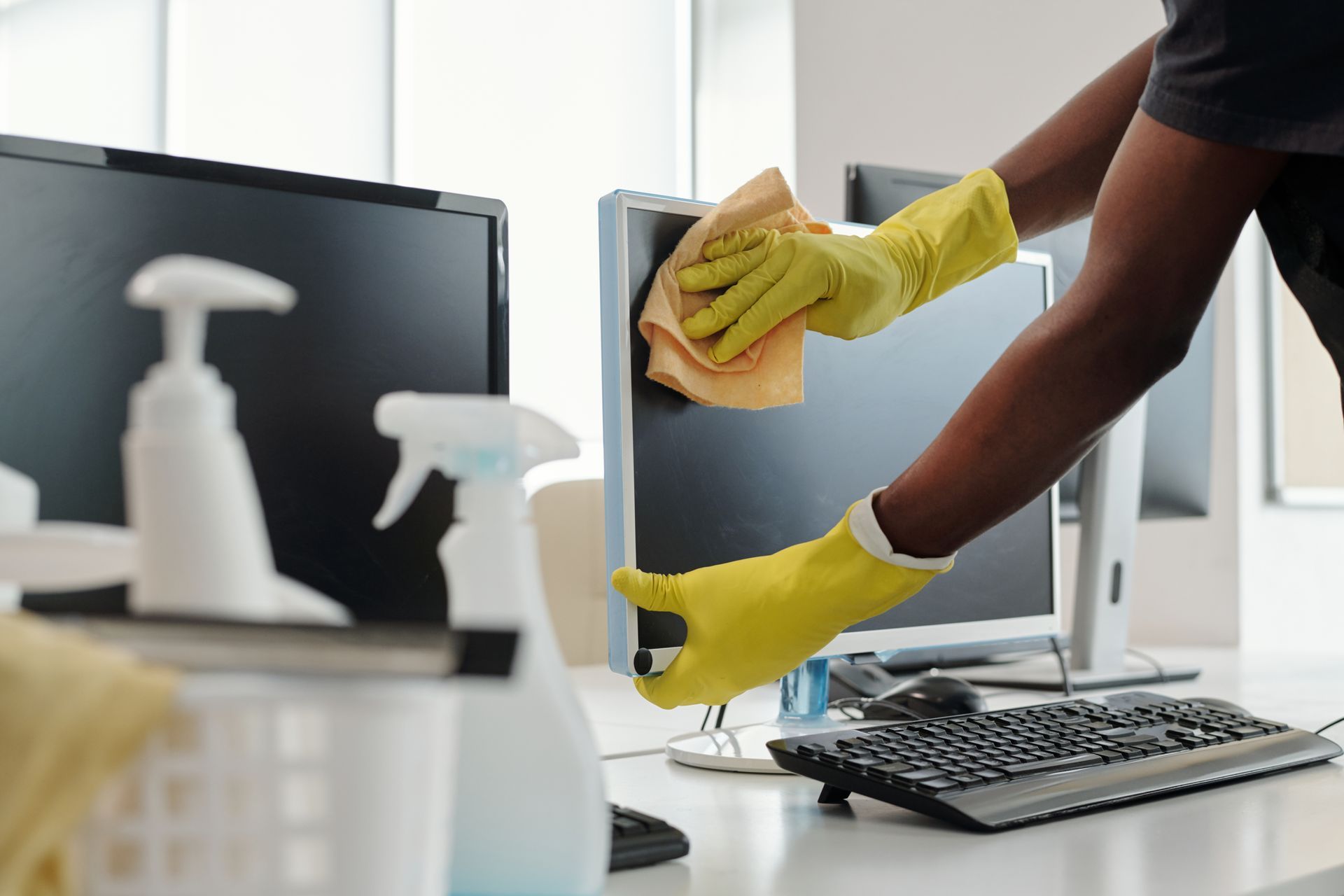
June 12, 2025
It’s impossible to clean the whole office building yourself, which is why there comes a point in time when you need to consider hiring a corporate cleaning company to do it for you. Not only are they capable of delivering high-quality services and informative tips, they also use their own products and equipment in the pursuit of cleanliness. All you need to do is show them where to go. However, be sure to ask the following 10 questions first before choosing the right corporate cleaning company: Question 1: How many years have you been in business? It’s important to ask this particular question in order to give you some peace of mind. Taking into consideration the number of ‘in business’ years, it may give you a clear indication of how reliable the company may be. Question 2: Do your employees receive in-house training? It may be a tedious question, but it’ll give you some insight into how well trained the employees may be. In-house training means that employees adhere to the cleaning company’s morals and set values. It may give you some peace of mind of how reliable the employees are. Question 3: Will I receive the same cleaners on a weekly basis? Ideally, you’d like to have the same employees in your office building on a regular basis. Not only will they become familiar with how you’d like to have certain areas cleaned and which areas they should stay clear of, it’ll also allow you to gain trust. Question 4: Do you have a green cleaning programme in place? Giving back and keeping the environment healthy may be important to you, in which case you should consider hiring a cleaning company with the same goals. The best way to ensure this is by asking whether or not the corporate cleaning company has such measures in place. Question 5: What kind of cleaning products do you use? Being informed of which products are being used in your office building may give you some peace of mind as to how safe the area may be for your employees. Heavy metals, artificial fragrances, phosphates, and volatile organic compound are said to be damaging to your health, so it’s important to know which products are being used. Question 6: How do you normally screen your employees? Knowing that your property and employees are safe in the presence of outside visitors will be a determining factor when hiring a corporate cleaning company. The best way to determine this is to find out how employees are being screened for employment. Question 7: Are you insured? What will happen if something breaks or gets lost? Who will cover the expenses? Who will be held liable? Find out determining whether the cleaning company is insured against such events. Question 8: What will I be paying for? Some companies want to know exactly what’s on the to-do list when hiring a corporate cleaning company. This will give you a clear indication of whether or not you need such services and whether some services need to be added to the list. Question 9: During which hours will the cleaning take place? It’s important to ensure that cleaning will take place during the times when the office is open. It may sound like an obvious request, however, some cleaning companies prefer to clean before employees show up for work, or even after hours. However, some companies may not be open after hours for cleaning purposes. Question 10: What are your rates? Is it in your budget? If not, will the cleaning company be open to adjusting their services to meet your budget requirements? It’s important to know before signing on the dotted line; even if it’s on a project–basis.
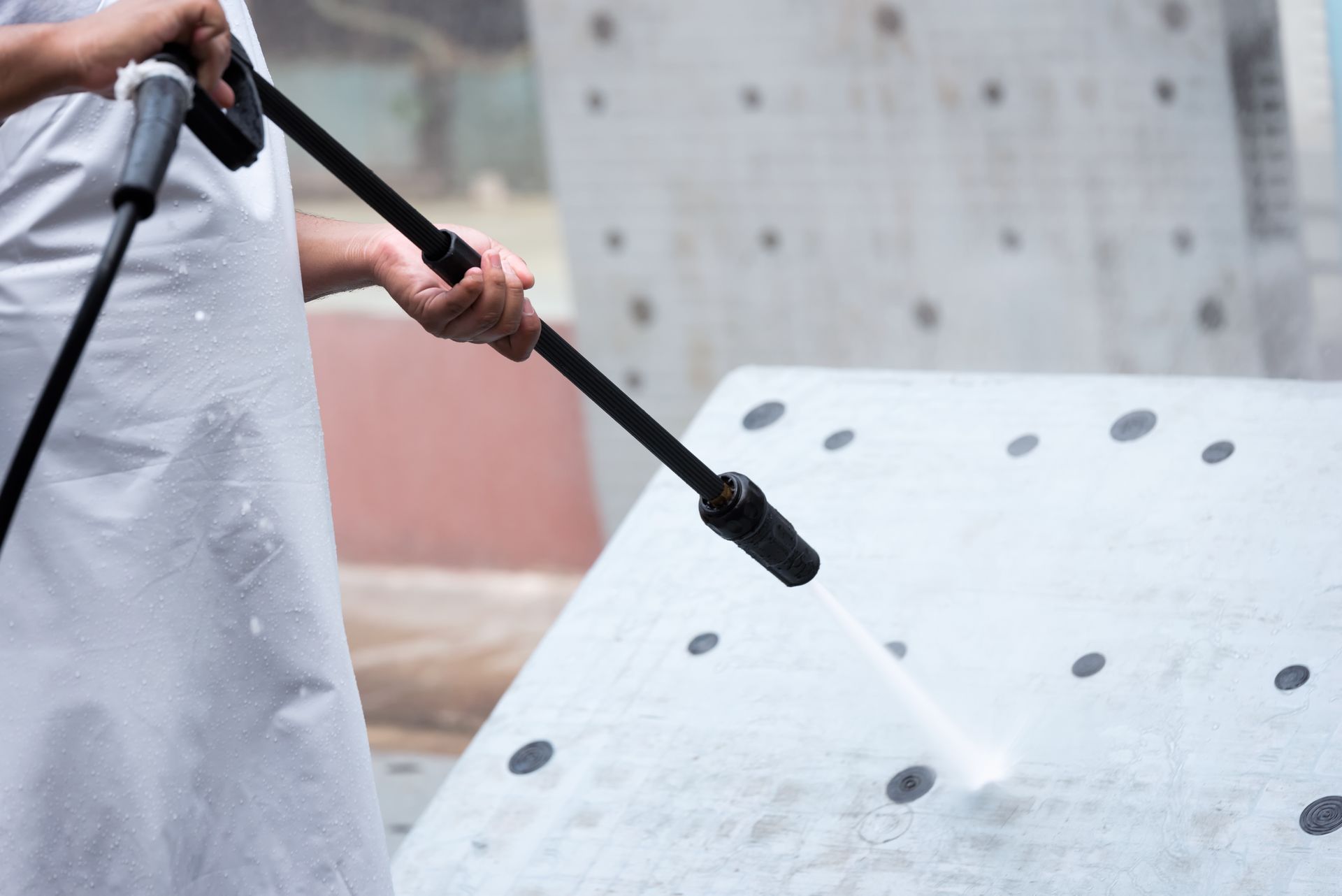
June 5, 2025
A clean environment provides peace of mind and suggests that a cleaning programme is in place, which is essential for gaining and retaining the trust and continuous support of clients and stakeholders in the food supply industry. Cleaning is the very first step in any food safety programme and is critical for protecting consumers. A collective responsibility – from the farm to the retailer’s fridge All participants in the food supply chain need to work together to ensure food safety, from the farm to the retailer’s fridge. It is a long chain of events where safety can be compromised. There are many first-world examples where food has caused sickness and even death, reiterating that food safety is undeniably complex and encompasses multiple participants and processes that need to be meticulously managed. The following information will guide suppliers in the food supply chain when needing to assess and select a cleaning company to support their efforts in food safety. 1. Cleaning food processing environments There are three levels of cleaning in food processing environments that are critical to food safety. Cleaning constitutes the visual aspect that involves removing dirt from a surface (oils, fats, spills, waste, etc.); Disinfection involves keeping the micro-organism levels in the environment to below harmful numbers; and Sanitisation is the process of removing all micro-organisms from an environment, as would be required in a hospital operating theatre, for example. Sanitisation is not practical, it is expensive to maintain and can be detrimental to people’s long-term health. 2. The ugly truth about bacteria in food safety Companies go to great lengths and expense to minimise bacteria in their food processing environments. However, it is widely recognised that maintaining a completely sterile environment contributes to resistant bacteria and super bugs. The daily exposure to safe levels of bacteria help people to stay healthy and ensure that our bodies remain equipped to fight off infection. For this reason, food processing facilities concentrate on maintaining a clean environment that is monitored regularly to ensure acceptable levels of micro-organisms. There are multiple factors that influence the speed at which bacteria multiplies in food processing environments. The safety of dry, frozen and chilled food items is influenced by various environmental conditions extending from exposure to moisture, through fluctuating temperatures, to dust, dirt and more. Since bacteria attaches itself to dirt, a preventative approach that focuses on effective cleaning everywhere, thoroughly and regularly supports food safety. Disinfection is an important part of the process, but with lower frequency to strike a good balance between cleanliness and acceptable bacteria levels. These levels are confirmed with weekly audits and analysis of the various areas and components within the environment according to a master cleaning schedule. 3. Critical control points – being savvy about hazards It is important to have appropriate food safety management procedures in place that are based on the principles of Hazard Analysis and Critical Control Point (HACCP). This requires: Identifying potential risks to food safety in the business; Identifying critical control points to remove or reduce those risks; Deciding on appropriate remedial actions; Confirming that proposed procedures are effective and followed correctly; Maintaining records to identify trends or opportunities to improve. Establishing critical control points requires an investigative approach to the environment and visibly assesses and identifies possible risks to food safety. These points could include the tops and bottoms of food preparation surface areas, equipment, machinery, chillers and freezer rooms, as well as non-food contact surfaces such as walls, lights, floors, air-conditioner units, controls and fixtures, to name some. The drainage system is another good example of a non-contact area. Drains are high germ catchment areas as most food processing environments are designed to be wet washed from the ceilings, to the walls and floors. Residue collects at the drain and provides a conducive environment for bacteria that needs regular cleaning and disinfection, which involves loosening and removing dirt and bacteria from the drainage system. 4. The importance of clean air in food processing Centralised air-conditioning systems will easily distribute bacteria across an environment, highlighting the importance of managing the extraction system in food production areas effectively to ensure quality air and to isolate and limit any potential cross contamination. Monitoring air quality is specialised work that falls under the management of the plant and equipment at a food production facility. However, proper surface cleaning of the air-conditioning unit, the filters, pipes and any controls would contribute to a clean and safe food processing environment. 5. The A, B, Cs of critical cleaning The process of cleaning directly impacts on food safety and involves standard processes that are detailed in the master cleaning schedule. Step 1: Clean – Get rid of as much of the physical dirt as possible by flushing or sweeping Step 2: Wash – Wash with water and the right chemicals using the correct application and cleaning technique to loosen the dirt. The type of dirt will influence the temperature of the water and the mechanical action required, for example, whether high pressure, steam cleaning, physical or mechanical scrubbing is needed. Step 3: Rinse – Rinse correctly, depending on the surface to remove the detergents. Step 4: Dry – Drying can be a physical step, a mechanical step using industrial machines that automatically include drying, or air-drying can be applied depending on the use and time factors. Bowls used on airlines for example, are washed in industrial machines that include a drying step to speed up the process. Step 5: Sanitize – This is an important step that, if required, would be detailed in the master cleaning schedule. The level of sanitisation depends on the surface area, and whether it comes in contact with food. High contact areas, such as chopping boards, must be sanitised after every clean. Step 6: Inspect – There are two types of inspection, a quick visual inspection and an audit process that involves a more detailed, checklist activity to ensure the quality of the clean and to ascertain the bacterial levels. 6. Know your dirt and how to effectively apply the four fundamentals of cleaning (temperature, technique, chemicals and time) There are many types of soils or dirt that are generated in food processing plants, including carbohydrates, proteins and fats; petroleum, lubricants or greases used in the food processing equipment; as well as salts, metallic deposits such as rust; and food residue, for example. The four fundamentals of cleaning need to be applied correctly and consistently, depending on the type of dirt and its alkaline levels to ensure safe and effective cleaning in a food processing environment. These fundamentals are temperature, cleaning technique, chemicals and time. The type of dirt dictates the temperature needed, the cleaning technique, the type of detergent and the time needed to effectively agitate and dislodge the dirt. A detailed master schedule and effective staff training are critical for ensuring that these fundamentals are applied correctly and consistently. 7. Know your chemicals Not all chemicals are safe or suitable for food processing environments. Cleaning companies need to have trusting relationships with their suppliers to ensure that they stay abreast of chemical certifications and safety information of the cleaning detergents to ensure the correct application in food processing plants. The accidental use of an incorrect chemical could result in devastating consequences for the client, including loss of business contracts with retailers or fast-food chains, expensive remedial actions and reputational damage. Chemical manufacturers provide technical data sheets on the cleaning detergent, which includes important information that indicates: Certification: Whether the chemical is food grade. SABS approved chemicals are certified as being suitable for the food industry (SABS18-53 and SABS18-28); Instructions: Instructions on how to use the product, including the preparation and the dilution ratios, the recommended application techniques and minimum surface contact time, as well as the compatibility of the detergent with various surfaces; MSDS: The Material Safety Data Sheet (MSDS) provides the safety requirements and remedial actions in the case of spillage or ingestion. 8. Achieving precision cleaning with the right cleaning routine A master cleaning schedule is a written protocol that details the cleaning routines necessary to support the hygiene requirements of all areas at a food processing facility. The schedule is compiled by the cleaning company in conjunction with the client and provides information on the total cleaning programme for the facility. The schedule is used as a tool to manage the cleaning teams on site and also contributes to staff training and assessments. The master cleaning schedule details every area in the facility and indicates the cleaning times, the type of detergents required, the equipment needed to perform the cleaning task, the cleaning method to be applied, any applicable disinfection that may be required, and the assigned resources who are responsible for the cleaning task. There are a number of factors that need to be considered when compiling the master cleaning schedule. Some of these are the type and size of the food production facility and whether it produces dry, frozen or chilled goods; the operating schedule of the plant and the operational shifts, which influences the cleaning times to ensure that effective cleaning can be done without interfering with operations; and the type of dirt that needs cleaning. 9. Cleaning protocols, employee training and performance monitoring People are critical to the cleaning process and the biggest risk to food safety. The first breakdown in the food safety programme is normally due to negligence and sub-standard performance by the cleaning staff. The correct training, management and monitoring of the cleaning teams is essential to food safety and a key differentiator between the players in the cleaning industry. Several tools ensure that quality services from a cleaning partner: Standard operating procedures (SOPs): The SOP details the standard cleaning protocol and procedures for specific cleaning tasks. It includes the details of the equipment, the chemicals, the personal protection equipment (PPE), as well as the recommended cleaning, disinfection and sanitisation techniques and the frequency to ensure that the cleaning is performed correctly and consistently by all the cleaning teams across client sites. Cleaning companies compile their own SOPs to ensure the delivery of standardised cleaning services. Master verification schedule: The master verification schedule validates that the cleaning team has performed all the cleaning task correctly, within the schedule and with the desired quality. The purpose of the master verification schedule is to ensure that the client expectations have been met and that the cleaning teams have accomplished their intended purpose. Master cleaning schedule: A master cleaning schedule is unique to each cleaning site and allocates the cleaning times, details and responsibilities to the cleaning teams per shift. It is a flexible document that changes according to the client’s requirements and the facility’s production schedule and is used to monitor activities and to keep individual staff accountable for specific tasks. Training matrix: The training matrix details the training requirements for the cleaning resources required on the site. It details every area in the building and identifies the type of resource required, the training needed to perform the tasks effectively, and the assessment details and frequency. Resources are assessed (either six monthly or annually) using a question and answer format to identify opportunities for further training, and to manage any performance issues. Monthly cleaning audits and reports: Food safety audits are conducted routinely by internal teams from the cleaning company in order to provide the necessary feedback to the client. However, retailers and fast-food chains appoint their own teams or external auditors to assess supplier facilities. Several audits can run simultaneously by various retailers at any given time and can amount to as many as 20 audits per year. Safety audits are an essential part of the FMCG (fast moving consumer goods) industry, and while it is a cumbersome process for the participants in the supply chain, it is vital for ensuring the safety of consumers. Choosing the right cleaning partner Maintaining hygiene standards with the right cleaning partner helps to support the production of safe, quality food. Clients should ensure that their cleaning partner complies with the criteria of ISO 22 000 and HACCP (Hazard analysis and critical control points) and that their standard operations include all the schedules and protocols to enable effective service delivery and management. Many cleaning companies claim to render expert cleaning services to the food industry. Clients should always ensure that the company has a sound track record and experience in the cleaning requirements of the diverse environments and facilities involved in food processing, including: Food preparation and handling areas; Storage and distribution depots; Production and processing facilities; and Kitchen cooker hoods, canopies and extraction systems. Some of the key differentiators in selecting a cleaning partner involve their commitment to on-going education, ensuring that the company stays up to date with the changes and developments of the industry. The supply of chemicals and equipment needs to be relevant and compliant to the requirements of food safety. Trusting relationships with cleaning teams, management staff and suppliers are critical to ensuring safe, effective and innovative cleaning services. Performance guarantee – no contract required At African Corporate Cleaning, we are so confident about solving all your needs that we will do so without any long-term contract in place. If we let you down, you just let us go. This ensures that we will always work hard at keeping you happy. See how quickly we can help you We have the right teams to ensure food safety at your facilities. Contact us for fast assistance: Contact us ACG Works enables confident and safe food supply. Other services you may want more information on: Washroom hygiene services Pest control Corporate cleaning services and deep cleans

June 5, 2025
As much as you’d like to cut costs by going down the DIY route, there comes a point in time when doing a professional’s job simply isn’t good enough. What seems quite simple to achieve, cleaning windows can pose their own set of challenges if you want them to sparkle. Not only can you easily leave unsightly streaks and miss dirty spots without meaning to, there are certain signs that you need to keep in mind when trying to figure out if you need professional help. You’re selling your home/business First impressions really do count; especially when it comes to the exterior of your property. “Washing windows is the number one pre-sale improvement that generates the best return on investment as measured by a higher selling price,” according to Money magazine. This means that, as the owner, you’ll receive a 768% return on investment simply by hiring someone to clean your windows. You’re damaging your window frames Identifying problems early on can save you plenty of money in the long run. Thus, window cleaning experts know exactly what to look for when cleaning your windows; whether you have ill-fitting windows or damage to the window frame due to ammonia-based cleaning products. Not knowing the difference, you may be damaging your windows without meaning to. You’re wasting valuable time Cleaning your windows takes time; valuable time out of your day that you could be spending on more important tasks – which is where professional window cleaning experts come in. Not only can they complete the job much faster than you’d be able to, they won’t leave streaks or dirty spots in the process. You don’t own the correct equipment Most individuals don’t have the correct equipment to perform a proper window cleaning job. You’d need tools such as squeegees, brushes, poles, and cleaning solution. In some instances, you may need to harness your way up if the windows are quite high. Professional cleaning companies who specialise in window cleaning would have the right type of equipment to complete the job. Your building consists of a multi-story block This is where hiring a professional cleaning company comes in extremely handy. Plenty of businesses are located in high-rise office buildings needing the services of professional window cleaners who have the correct equipment and proper training to clean windows successfully and in a safe manner. Worried about dirty windows? Hire a professional cleaning company that knows exactly how to get the job done within a timely manner.


